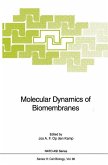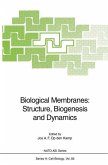The proteome consists of a complex mixture of proteins each of which need to be folded correctly in order to function for the health of the organism, and many of these proteins require molecular chaperones to reach the correct conformation and, in some cases, to remain in a folded form. In Molecular Chaperones: Methods and Protocols, expert researchers address a wide variety of approaches to the study these mechanisms, featuring the workings of heat shock proteins and heat shock transcription factors, in vitro and in vivo. Written in the highly successful Methods in Molecular Biology(TM) series format, chapters features introductions to their respective topics, lists of the necessary materials and reagents, step-by-step, readily reproducible laboratory protocols, and tips on troubleshooting and avoiding known pitfalls.
Authoritative and cutting-edge, Molecular Chaperones: Methods and Protocols serves as an ideal guide for all scientists who wish to pursue this vital biological action and its impact on human health and disease.
Authoritative and cutting-edge, Molecular Chaperones: Methods and Protocols serves as an ideal guide for all scientists who wish to pursue this vital biological action and its impact on human health and disease.
From the reviews:
"This book details current methods and protocols essential for understanding the biological properties and roles of the molecular chaperones ... . It appears to be written for all scientists interested in understanding the roles of molecular chaperones, which would include students and researchers interested in heat shock proteins. ... This will be a useful guide for all scientists interested in the field of heat shock proteins and molecular chaperones and their role in health and disease." (Omer Iqbal, Doody's Book Reviews, December, 2011)
"This book details current methods and protocols essential for understanding the biological properties and roles of the molecular chaperones ... . It appears to be written for all scientists interested in understanding the roles of molecular chaperones, which would include students and researchers interested in heat shock proteins. ... This will be a useful guide for all scientists interested in the field of heat shock proteins and molecular chaperones and their role in health and disease." (Omer Iqbal, Doody's Book Reviews, December, 2011)








